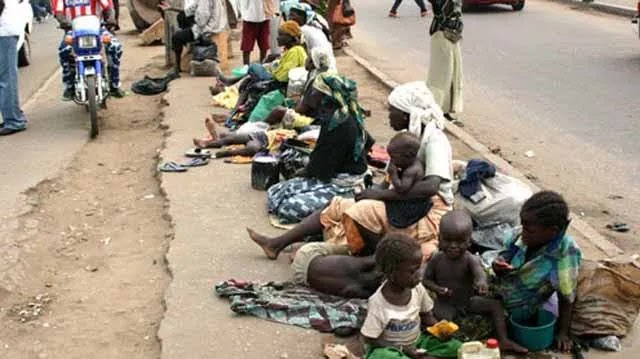A new category of beggars, referred to as "Corporate Beggars," is emerging in various locations around Abuja, including shopping malls, markets, bus stops, religious centres, hospitals, and offices.
Journalists have discovered that these corporate beggars view begging as a means of livelihood, with some earning more than certain workers. They often prey on the sympathy of unsuspecting Nigerians, who struggle to differentiate between genuine pleas for help and fabricated stories designed to evoke pity.
Godson Amadi, a good Samaritan, shared his frequent encounters with these beggars at bus stops, markets, and offices. He said, “I know most of their strategy; they are usually well dressed. Some are real, and some are fake. It is either their wallets or credit cards have been stolen. They look out for people riding in SUVs, official cars, or those who are well-dressed. Once you respond to their greetings politely, they strike.”
Halima Sani, a civil servant, recounted her experience with a female beggar at the federal secretariat car park. The beggar claimed her child was ill and needed money for medication, leading Sani to give her N10,000. However, months later, the same woman approached Sani at a bank, pleading for money to buy food items to cook, having already had someone refill her cooking gas.
Esther Ibrahim, another victim, vowed never to fall prey again after an encounter with a corporate beggar at the Kado fish market. She narrated how a well-dressed lady asked her to pay for a fish to cook for a sick patient, only to find the same lady begging again when she went to buy chicken.
Businessman Aliyu Audu expressed his familiarity with their tactics and the lies they tell to exploit innocent citizens, whom they often earn more than. He said, “It’s either they need money for food, transportation, hospital bills or drugs, among others.”
Meanwhile, journalists spoke to a beggar at Wuse Market, who chose to remain anonymous, revealing that most of them beg because they have no other means of livelihood.
She confessed that before the removal of the fuel subsidy, she used to make up to N150,000 to N200,000 monthly. However, due to the current economy, she now makes between N90,000 and N100,000 monthly. She said, “The only thing I know how to do is beg, as it pays me more than getting a job.”
Emmanuel Eze, another beggar, shared that begging pays his bills and earns him up to N5,000 and above daily. He said, “I did not choose to beg, but the economy turned me into one. I used to work in a factory, but after the fuel subsidy removal, the company left the country and made me jobless; I have people who depend on me, and that was how I started begging.”
Isa Isa, a beggar with a disability, said he was born that way into a family of 108, adding that his father had four wives. He said, “Now I beg for fun as it’s the only job I understand; I make more than N300,000 monthly.”
Nuhu Bello, a 12-year-old beggar, said he begs to feed his family. He said, “My father is dead; he was a beggar, and my mum cannot beg. I have to do it to feed her and my four siblings.”



